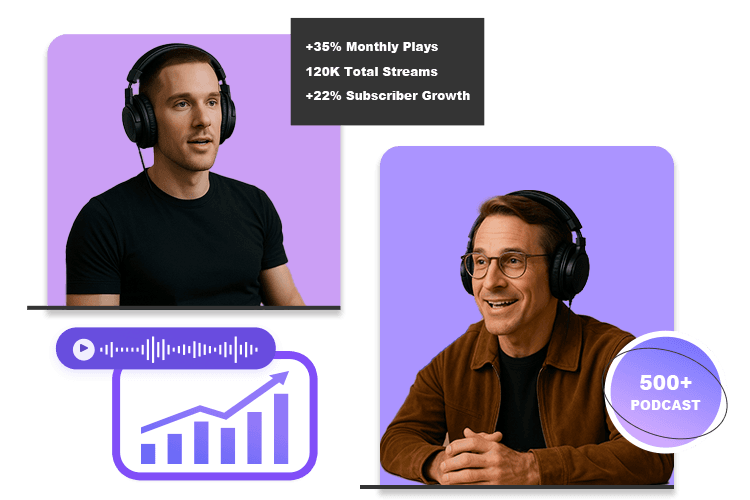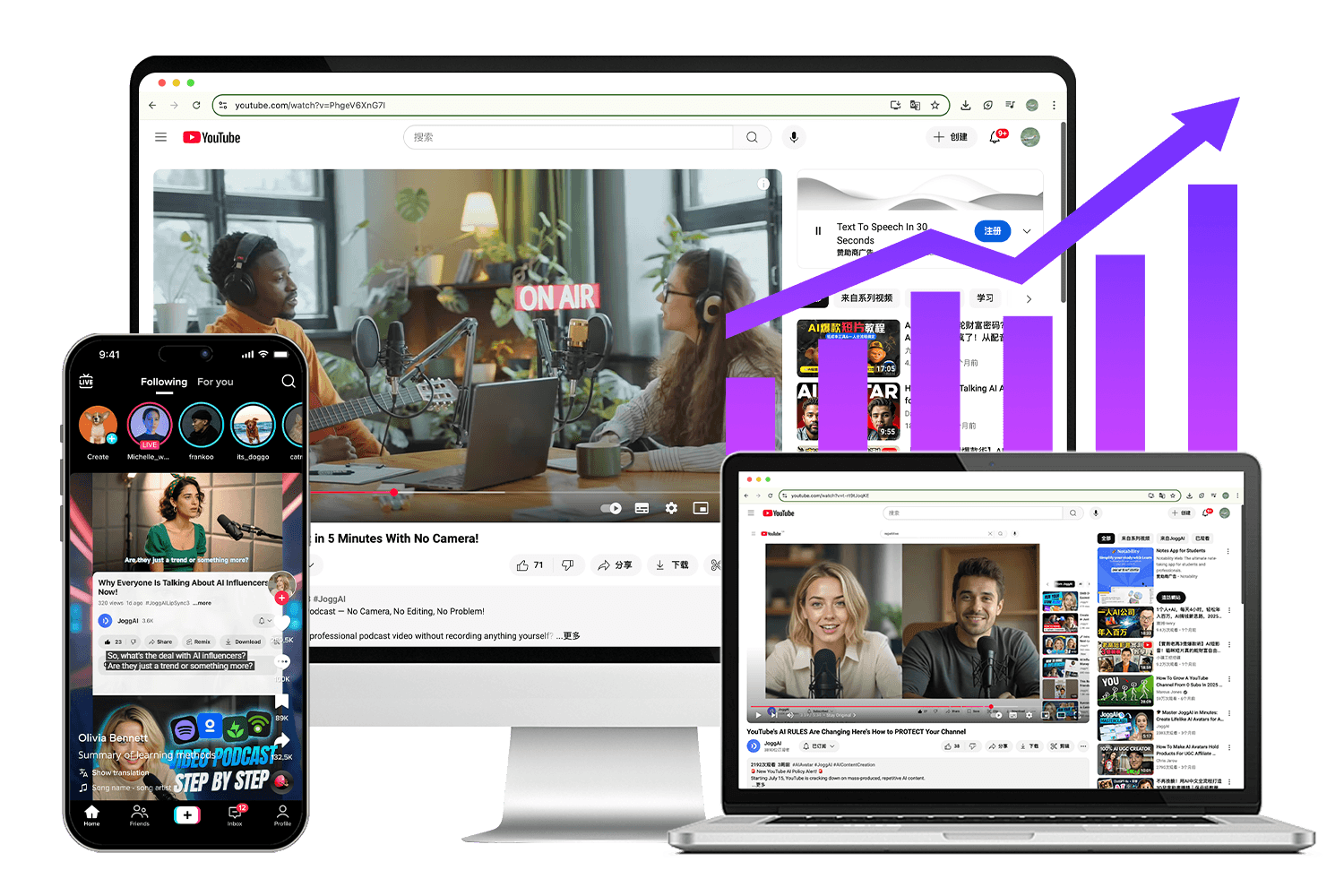Podcasts are one of the fastest-growing forms of media today. From news updates to educational series and brand storytelling, they’ve become a go-to way for people to consume content on the move. Yet, creating a high-quality podcast isn’t always easy — writing scripts, recording, editing, and distributing can feel like a full-time job.
That’s why tools like the AI Podcast Generator by JoggAI are gaining attention. By leveraging artificial intelligence, they’re making podcast creation faster, easier, and far more accessible.
The Challenges of Traditional Podcasting
Before AI stepped into the picture, podcasting came with some significant hurdles:
- Time commitment – Research, scriptwriting, recording, and editing can take hours for a single episode.
- Technical know-how – Good audio quality demands the right gear and production skills.
- Cost barriers – Hiring editors, sound engineers, or renting a studio can be expensive.
- Accessibility issues – Not everyone is comfortable speaking into a microphone, and language limitations restrict global reach.
For small businesses, teachers, or individual creators, these hurdles often meant that launching a podcast was more of a dream than a reality. The industry was dominated by large media companies with the resources to manage professional productions.
How AI Podcast Generators Work?
AI podcast generators flip the script by automating the most time-consuming and technical aspects of production.
Here’s a step-by-step look at the process:
- Input Your Idea – Users can start with a topic, a headline, or even just a few keywords.
- AI Scriptwriting – Natural language processing allows the AI to draft outlines or full scripts, saving hours of preparation.
- Voice Creation – Synthetic voices today are nearly indistinguishable from human ones, complete with natural pauses, tone shifts, and emotion.
- Automatic Editing – The system can balance audio levels, remove background noise, and insert smooth transitions.
- Export & Publish – Once finalized, episodes are ready to upload instantly to popular podcast platforms.
This streamlined workflow makes podcasting as simple as writing an email or posting a blog.
Real-World Use Cases
The real power of AI podcast generators shines when we look at how they’re being applied in everyday contexts.
- Education: Teachers can create bite-sized audio lessons for students who prefer learning on the go. A math teacher, for example, could generate weekly recap episodes for exam prep.
- Small Businesses: Imagine a local coffee shop launching a podcast about community events, coffee brewing tips, and customer stories — all without needing to hire a production team.
- Content Creators: Bloggers and YouTubers can repurpose their existing content into podcasts, reaching new audiences without doubling their workload.
- Nonprofits: Advocacy groups can share impactful stories in audio form, expanding reach and building stronger emotional connections with listeners.
What was once restricted to well-funded media studios is now within reach for virtually anyone with an internet connection.
Accessibility and Inclusivity
One of the biggest wins with AI podcasting is how it lowers accessibility barriers.
- For non-native speakers: AI can generate podcasts in multiple languages, allowing global creators to communicate with audiences beyond their native tongue.
- For people uncomfortable with recording: Not everyone likes the sound of their own voice. AI-generated voices remove this friction, enabling creators to focus on content instead of delivery.
- For visually impaired learners: Converting text-based content into audio podcasts ensures inclusivity and helps learners access material more easily.
In essence, AI tools are not just making podcasting easier — they’re making it more democratic and representative.
The Future of AI-Powered Podcasting
Looking ahead, AI podcasting is expected to become even more sophisticated.
- Dynamic Co-Hosting: Future AI systems could act as conversational partners, asking questions, offering counterpoints, and adding a sense of dialogue to solo podcasts.
- Real-Time Adaptation: Imagine a podcast that evolves while you listen — AI could adjust tone, examples, or explanations depending on listener feedback.
- Hyper-Personalized Shows: With AI-driven analytics, episodes could be customized for different audiences. A business podcast, for instance, could automatically generate tailored versions for small startups versus large enterprises.
- Seamless Multimedia Integration: Podcast generators might soon create not just audio, but full multimedia packages with transcripts, highlight clips, and even video versions of episodes.
This future points to a world where podcasting becomes as ubiquitous and effortless as posting a social media update.
Why This Matters?
AI podcast generators are not replacing creativity — they’re amplifying it. By removing technical and financial obstacles, they allow creators to focus on what really matters: ideas, stories, and meaningful conversations.
For businesses, it means connecting with audiences in new, authentic ways. For educators, it means reaching students where they are. For individuals, it means turning passion into shareable content without overwhelming complexity.
Conclusion
AI podcast generators represent more than just a technological trend — they mark a cultural shift in how content is created and shared.
By lowering costs, reducing time commitments, and expanding accessibility, they are opening the doors of podcasting to voices that might otherwise remain unheard.
As these tools continue to evolve, the only real limit will be imagination. Whether you’re an educator, a business owner, or simply someone with a story to tell, now is the perfect time to explore how AI can power your podcasting journey.



